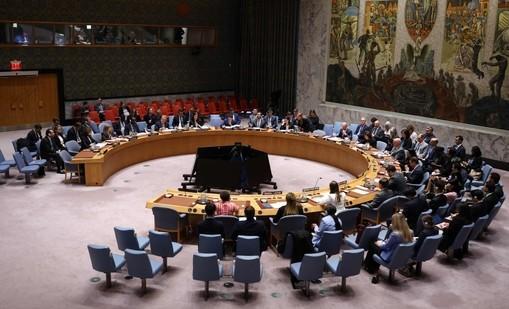
Was LeT involved? UNSC asks Pak on J&K attack, refuses to accept ‘false flag’ claim
In a significant development, the United Nations Security Council (UNSC) members have questioned Pakistan’s claim that the recent Pahalgam attack in Jammu and Kashmir was a “false flag” operation. During a closed-door meeting requested by Pakistan, the UNSC members refused to accept the narrative and instead asked if the Lashkar-e-Taiba (LeT) terror outfit, which is based in Pakistan, was likely to be involved in the attack.
The Pahalgam attack, which took place on October 11, left eight people dead, including six civilians and two police personnel. Pakistan had initially denied any involvement in the attack, but the UNSC members are not convinced by this claim. According to reports, some members of the council brought up the targeting of tourists on the basis of religion, indicating that the attack may have been perpetrated by a terrorist outfit with a religious agenda.
The UNSC meeting was convened in response to a request by Pakistan, which had claimed that the Pahalgam attack was a “false flag” operation designed to discredit Pakistan and destabilize the region. However, the council members were not convinced by this narrative and instead focused on the possibility of LeT involvement.
LeT is a Pakistan-based terrorist outfit that has been responsible for several attacks in India, including the 2008 Mumbai attacks that killed over 160 people. The outfit is known for its anti-India rhetoric and has been designated as a terrorist organization by several countries, including the United States.
The UNSC members’ refusal to accept Pakistan’s “false flag” narrative is a significant development, as it suggests that the international community is not convinced by Pakistan’s claims of innocence. The council’s questioning of LeT involvement is also significant, as it highlights the possibility that the attack may have been perpetrated by a terrorist outfit with a history of violence.
Pakistan’s “false flag” narrative has been widely criticized by experts and analysts, who point out that the attack was carried out in a region that is known for its volatile political climate. The region has seen several attacks in recent years, and it is not uncommon for terrorist outfits to target tourist areas in order to create fear and uncertainty.
The UNSC meeting was convened in response to a request by Pakistan, which had claimed that the Pahalgam attack was a “false flag” operation designed to discredit Pakistan and destabilize the region. However, the council members were not convinced by this narrative and instead focused on the possibility of LeT involvement.
Pakistan has consistently denied any involvement in the Pahalgam attack, but the UNSC members are not convinced by this claim. According to reports, some members of the council brought up the targeting of tourists on the basis of religion, indicating that the attack may have been perpetrated by a terrorist outfit with a religious agenda.
The UNSC members’ refusal to accept Pakistan’s “false flag” narrative is a significant development, as it suggests that the international community is not convinced by Pakistan’s claims of innocence. The council’s questioning of LeT involvement is also significant, as it highlights the possibility that the attack may have been perpetrated by a terrorist outfit with a history of violence.
The Pahalgam attack is not the first time that Pakistan has been accused of involvement in a terrorist attack in Jammu and Kashmir. In the past, Pakistan has been accused of supporting terrorist outfits such as LeT and Jaish-e-Mohammed (JeM), which have been responsible for several attacks in the region.
Pakistan has consistently denied any involvement in these attacks, but the international community has repeatedly accused the country of supporting terrorist outfits and providing them with safe haven. The UNSC meeting is a significant development, as it suggests that the international community is not convinced by Pakistan’s claims of innocence and is instead demanding that the country take concrete action to prevent the spread of terrorism.
In conclusion, the UNSC meeting on the Pahalgam attack is a significant development, as it suggests that the international community is not convinced by Pakistan’s “false flag” narrative and is instead questioning the possibility of LeT involvement. The council’s refusal to accept Pakistan’s claims of innocence is a significant development, as it highlights the possibility that the attack may have been perpetrated by a terrorist outfit with a history of violence.
The international community must continue to pressure Pakistan to take concrete action to prevent the spread of terrorism and to hold accountable those responsible for the Pahalgam attack. The attack is a reminder of the need for continued vigilance and cooperation in the fight against terrorism, and it is essential that the international community comes together to address this threat.



